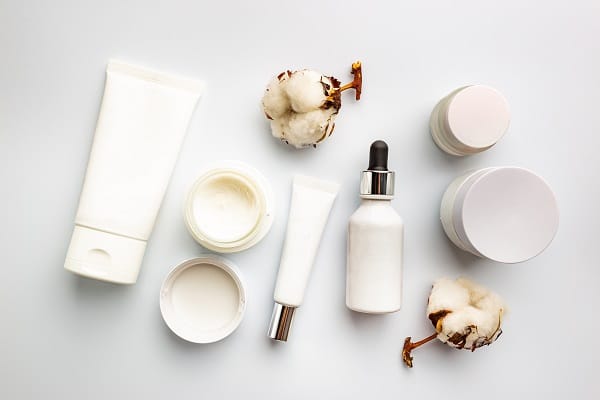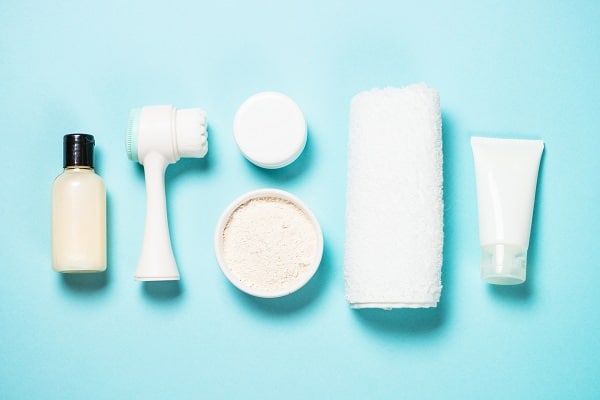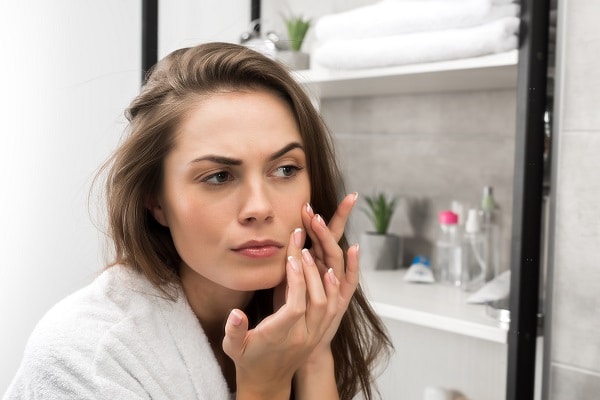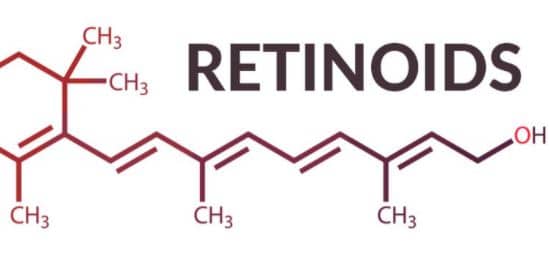Typically, a skincare routine includes washing, exfoliating, and toning your face to make it glow. This way of taking care works well with almost all skin types: oily, dry, or combination skin. The key is not to overdo the process of cleansing. Susceptible skin tends to get irritated by applying anything in excess. However, taking good care of the skin is good, but certain excessive processes may go wrong with the skin. Most people tend to overuse skincare products thinking it would help. According to a skin care specialist, the two most common mistakes happen, first using multiple products that are precisely similar and, second, too much exfoliation.
Sensitive skin is a little tough to deal with; different people who think they have sensitive skin may use irritating products in excess.
Typically, people who tend to have allergy issues or irritant skin reactions to cosmetic products and some skin conditions such as psoriasis, or eczema, rosacea are assessed to have sensitive skin.
There are several ways to make them less sensitive and to improve your skin process at its healthiest in the meantime. Natural ways for clean and soft skin are early to bed and early to rise, keep your stomach clean, have vegetable and fruit juices, especially vitamin C and E are good for skin management. Adequate hydration of the body is good for healthy skin.
Here are a few tried and tested strategies to keep your sensitive skin happy, directly from skin experts.
Contents
Few Products With Fewer Ingredients

Experimenting with skin is not a good idea; it may have adverse effects on the skin. Various products will have their own merits and demerits. You have to choose the skin care products that can benefit your skin calmly. Sensitive skin needs special care, not multiple experiments of products. At a time, few products with fewer ingredients are the Key, according to experts. Least skincare products that suit your skin type perfectly choose them, such as a mild cleanser, sunscreen, and moisturizer. Exfoliation anyways is not suggested for every day. Once or twice a week is recommended.
Avoid Over Washing And Over-exfoliating

Skin naturally makes lipids and proteins, which create a protective barrier. Hence it is not required to clean skin using exfoliation, scrubbing, and harsh cleansers. Washing your face extensively is not going to help. It can wash away all the significant lipids and proteins down the drain. Washing your face once a day with plain water or with a gentle cleanser is more than enough. Dermatologist Suzan Obagi suggested specifically, having sensitive skin, you should avoid excess exfoliation. It harms the skin’s protective barrier by thinning; hence, harmful substances can easily penetrate the skin.
Take The Time To Patch Test New Products

Hundreds of skincare products are launched every year in the market. Not every product is useful to you. Looking at the ingredients, you can consider buying a few products. Don’t be in a hurry to apply the new skincare products. Good idea to always analyze a small amount of the new product on the inside of your leg overnight. The next morning if you find no reaction, then it is safe to apply to the face. Eventually, you can increase the use of the product if you find it perfect for your skin.
To find out if the product is comedogenic for your skin, you can try skin patch testing.
Recognize Your Triggers By Reading The List

Due to having sensitive skin, you should always be on alert to check the ingredients. The promising way to regulate delicate skin is to specify and prevent the ingredients that ignite its sensitivity. It is often best to know and avoid the ingredients that cause irritations, whereas sometimes, you prefer a skin patch that irritates the culpable ingredient.
Hence it’s a good idea to read the list of ingredients and identify what is irritating your skin, and stop using that product.
See The Reaction And Stop Using The Product

Even if you are careful, you may also get an adverse reaction as you put skincare products on the face. You should immediately stop using the products and treat the skin until it heals fully. If you cannot point out which ingredient irritates, then take the skin experts’ help and get the skin patch test done as soon as possible.
Keep Showers Short And Efficient

Cleanliness is mistaken for over-cleansing sometimes. It’s not required at all to take showers for hours, as the skin loses Its softness and shine by over- bathing. Skin is all over your body; it’s just not your face that can be sensitive. Gentle treatment of sensitive skin is essential to get healed quickly. Limit the usage of soaps in the armpits, buttocks, or groin as such areas are with the odor-producing sweat glands. Bath efficiently. Knowing you have sensitive skin, consider limiting water usage to avoid dryness in the skin.
Keep your shower time short, at the max of ten minutes. Consider taking warm water baths, not hot water. Washcloths and loofahs skin crowded as they can be harsh for the skin. Immediately after the shower applying a good moisturizer to seal the skin’s moisture would be a great way to take care of your sensitive skin.
Choose Retinoids Or Alpha-hydroxy Acids

One of the most effective skincare ingredients is retinoids, which can be irritating for some people, so if you want to try that, it is significant to introduce it in your skincare routine in the right way. A few tips for sensitive skincare can limit the new products used for nights and then gradually start using that. You can dilute retinoid with moisturizer and make it less irritating. Ensure to avoid the most sensitive areas around the mouth, nose, and eyelids. Still, if you find that intolerable, you can try alpha- hydroxy- acids like glycolic acid or lactic acid instead of retinoid. These skincare ingredients will boost the skin with slight exfoliation without irritation of the skin.
Conclusion
Skin is the most extensive tissue that is all over the body. It needs to be treated gently to look beautiful and healthy. Susceptible skin requires gentle, consistent care in every way. Nowadays, many ingredients are available that can be beneficial for your skin. There can be several skin issues such as psoriasis, spots, itchy skin. Taking treatment prescribed by a skin specialist is the best idea and implementing the suggestions too. For example, avoid taking hot water baths for long hours, few products with fewer ingredients are suggested, and taking skin patch tests to know skin irritability will significantly boost skin quality.


